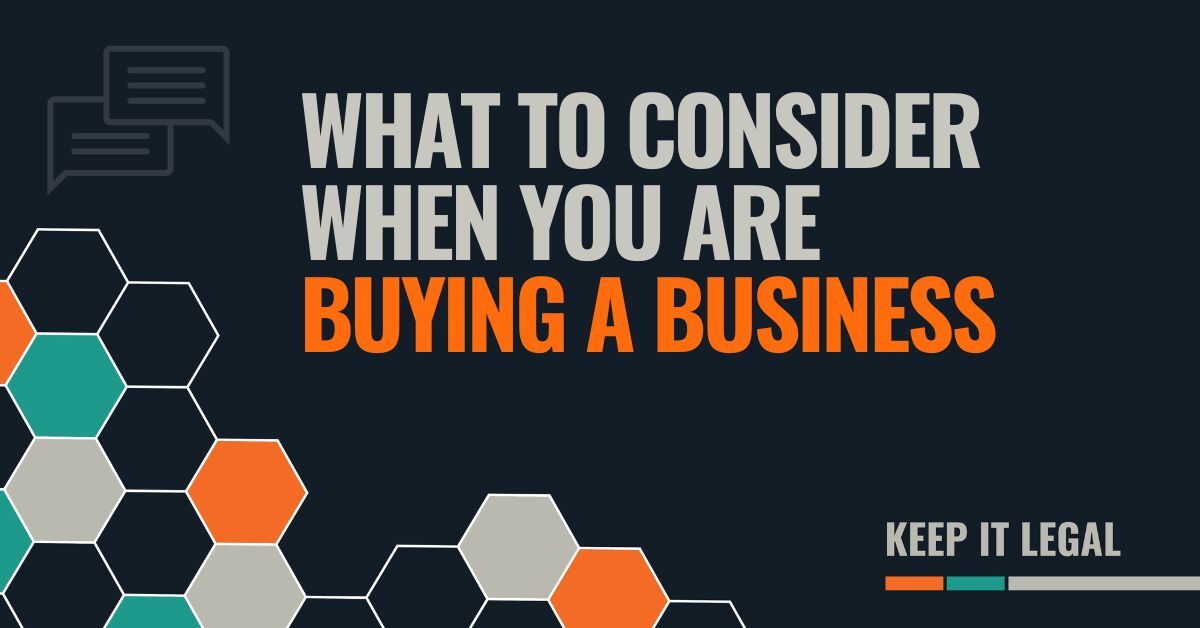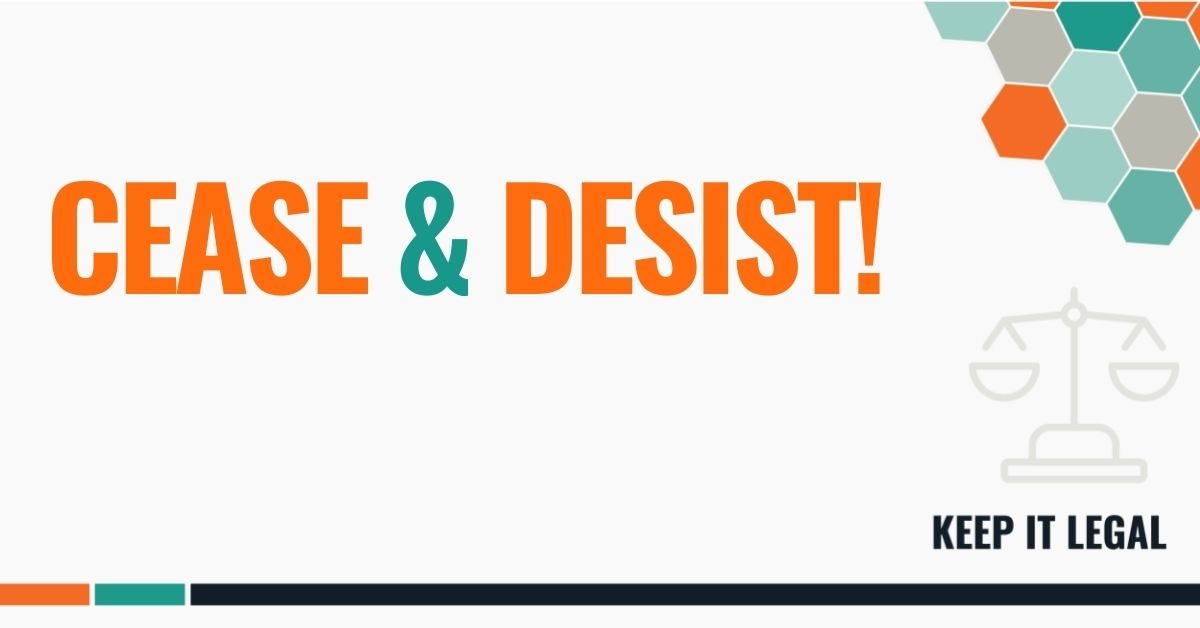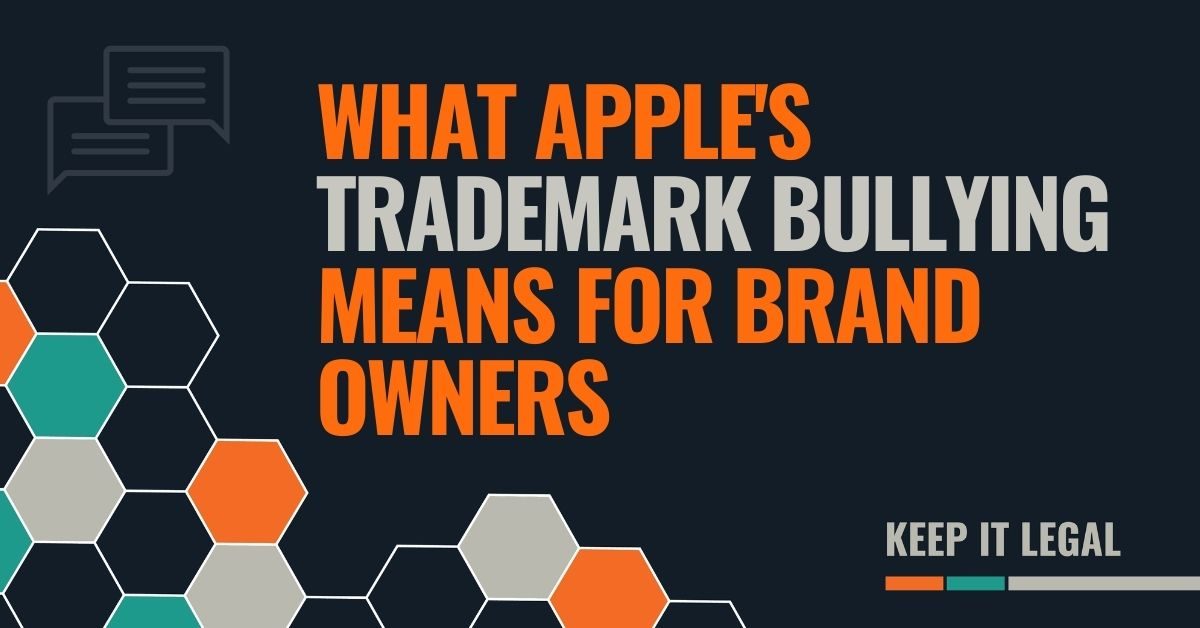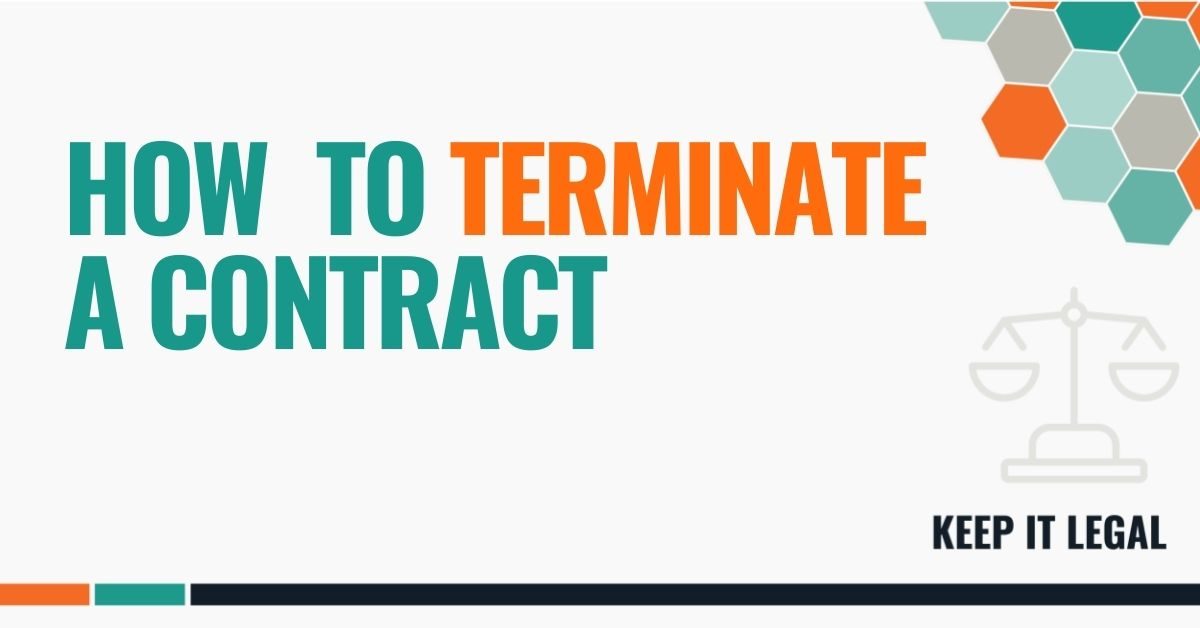I often assist clients who are buying businesses. Whether it’s your first time buying a business or you’ve done this before, there are some important legal considerations to be aware of. This post won’t cover the financial or tax aspects of purchasing a business. There are a lot of good resources out there to assist with those issues (my #1 piece of advice here is to hire a good CPA). Instead, we’re going to look at some of the legal points on the checklist. The first question to ask is whether you are buying the assets (and, possibility, liabilities) of…
Keep it Legal Blog
Cease & Desist!
March 28, 2022
So you’ve discovered that someone is infringing on your trademark. Now what do you do? My clients often find that some other person or business is infringing on their trademark rights. They’re then faced with deciding what to do about it. Ownership of a trademark (whether or not it’s been registered with a trademark office such as the United States Patent and Trademark Office) gives the owner, in many cases, the right to prevent competitors from using an identical or confusingly similar mark. By “trademark” or “mark”, I’m referring to anything that identifies you as the source of your goods…
What Apple’s Trademark Bullying Means for Brand Owners
March 15, 2022
A recent article in the New York Times detailed Apple’s aggressive approach to trademark protection. The headline didn’t hesitate to call Apple out for bullying, and I think that’s the right term to use. The article begins with a story of “one of dozens of entrepreneurs, small businesses and corporations that Apple has gone after in recent years for applying to trademark names with the word ‘apple’ or logos of stemmed fruit.” It goes on to note that “Apple has frequently targeted entities that have nothing to do with tech or that are infinitesimal in size. It has even set…
How to Terminate a Contract
February 3, 2022
Every business owner enters into a contract hoping that it’s going to work out perfectly and they’ll never need to terminate it. But often, for a variety of reasons, there’s a need to take action to bring a contract to a close. This is true whether you’re working with an independent contractor or a large company. I’ve found that some clients have never put much thought into the contract termination process. As with most things, it’s best to start at the beginning. When you’re actually negotiating the contract, take the time to consider why you might need to get out…





